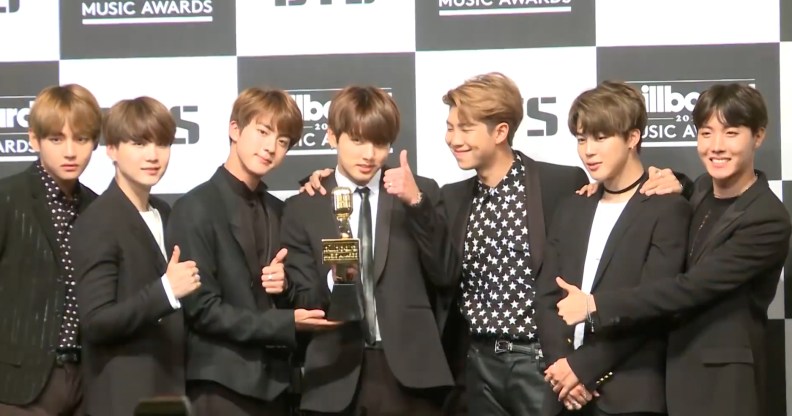Russian anti-gay group bans screening of K-pop band BTS film

Korean boy band BTS (Wiki Commons)
A Russian anti-gay group has banned the screening of a documentary about the K-pop band BTS.
The Korean band, also known as the Bangtan Boys, had campaigned to get their film BTS World Tour: Love Yourself shown across Russia.
The documentary was due to be aired at a cinema in the city of Makhachkala in Dagestan, in the North Caucasus region of the country.
Although the theatre began to sell tickets on 20 December, members of an anti-gay group began to protest the film on social media.
One person warned the film was about “seven Korean homosexuals”, according to local news organisation Md-gazeta.ru.
“Urgently repeal debauchery,” another added.
The cinema cancelled the premiere after the outcry, which was due to take place on 26 January.
None of the seven members of the band openly identify as LGBT+.
LGBT+ bands in Russia
Earlier this year, the queer Russian pop band SADO OPERA, who now live in Berlin, spoke to Pink News about the realities of life in Russia.
Colonel and Katya began their music careers in Russia, where they regularly faced police harassment for wearing make-up and had their concert posters defaced in the street.
Colonel explained: “Any kind of behaviour which is just different to the average, can be banned, provoke aggression, or even provoke police interest.”
A lot of our Russian friends who visit us from Berlin, in the first few days, they actually feel uncomfortable that they actually can hold each others’ hands and hug,” Katya added.
“People say: ‘Wow, you can just walk with your boyfriend holding hands!’ Colonel added.
Russia gay propaganda law
In 2013, Russia implemented a “gay propaganda law” that exacerbated hostility towards LGBT+ people in Russia.
This month, a Human Rights Watch report found that the law is directly harming and endangering LGBT+ children and young people.
The report – which is called “No Support: Russia’s ‘Gay Propaganda’ Law Imperils LGBT Youth” – found that the law has prevented LGBT+ people from accessing inclusive education and support services.
This has had a detrimental impact on children and young people, it added.
How did this story make you feel?

